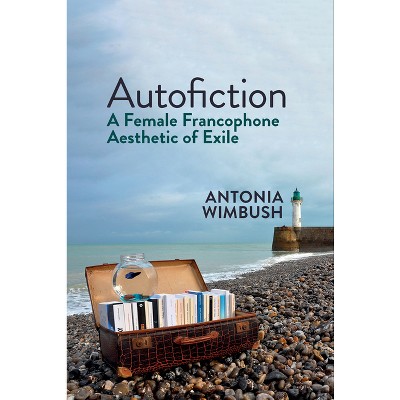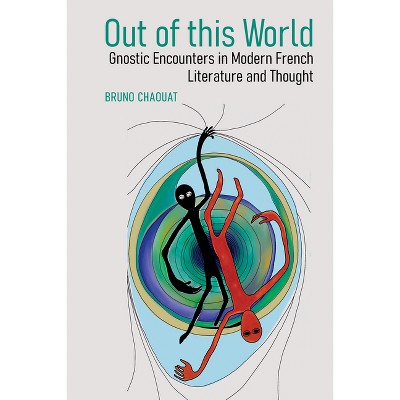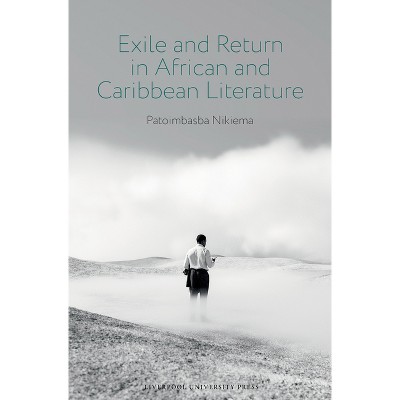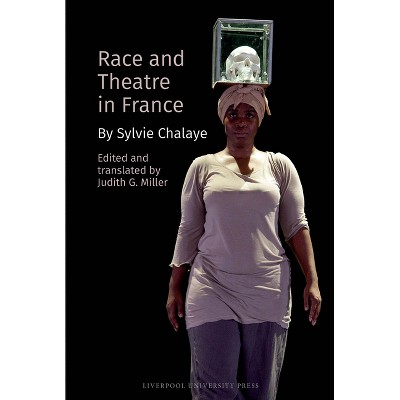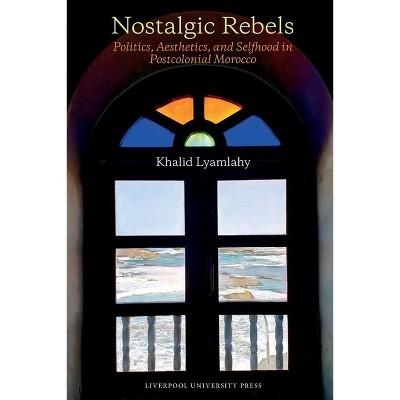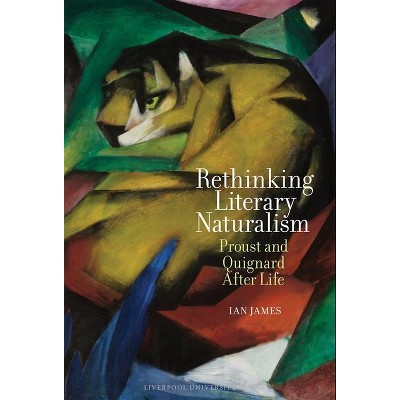Sponsored

Twenty-First-Century Symbolism - (Contemporary French and Francophone Cultures) by Nikolaj Lübecker (Paperback)
In Stock
Sponsored
About this item
Highlights
- Twenty-First-Century Symbolism was the winner of the 2023 R. Gapper Book Prize.How do the writings of Verlaine, Baudelaire, and Mallarmé speak to our time?
- About the Author: Nikolaj Lübecker is Professor of French and Film Studies at St John's College, University of Oxford.
- 232 Pages
- Literary Criticism, Poetry
- Series Name: Contemporary French and Francophone Cultures
Description
About the Book
Twenty-First Century Symbolism argues that the writings of Baudelaire, Verlaine and Mallarmé prefigure a view of human subjectivity that can be productive today, as we try to rethink our place in a world dominated by rapid technological developments and wide-ranging ecological changes.Book Synopsis
Twenty-First-Century Symbolism was the winner of the 2023 R. Gapper Book Prize.
How do the writings of Verlaine, Baudelaire, and Mallarmé speak to our time? Why should we continue to read these poets today? How might a contemporary reading of their poetry differ from readings delivered in previous centuries? Twenty-First-Century Symbolism argues that Verlaine, Baudelaire, and Mallarmé prefigure a view of human subjectivity that is appropriate for our times: we cannot be separated from the worlds in which we live and evolve; human beings both mediate and are mediations of the environments we traverse and that traverse us, whether these are natural, urban, linguistic, or technological environments. The ambition of the book is therefore twofold: on the one hand, it aims to offer new readings of the three poets, demonstrating their continued relevance for contemporary debates, putting them into dialogue with a philosophical corpus that has not yet played a role in the study of nineteenth century French poetry; on the other, the book relies on the three poets to establish an understanding of human subjectivity that is in tune with our twenty-first century concerns.
Review Quotes
'Apart from being a compelling read, Twenty-First-Century Symbolism: Verlaine, Baudelaire, Mallarmé is a must for those who believe in the never-ending enriching power of poetry, and think, at the same time, that all the arts exist to help us living up to the encounters and challenges the world offers us at every turn.' Francesco Sticchi, **Modernism/modernity**
'Twenty-First Century Symbolism: Verlaine, Baudelaire, Mallarmé is a fascinating text, which rereads selected symbolist texts in dialogue with contemporary critical theories. This ambitious project is a success... Lübecker offers a fresh perspective on poems about which we may have thought all had been said.' Translated from French: 'Twenty-First Century Symbolism: Verlaine, Baudelaire, Mallarmé est un texte fascinantqui offre une relecture de certains textes symbolistes à la lumière des théories dumoment. Cet ambitieux projet est réussi... Lübecker offre uneperspective rafraîchissante sur des poèmes sur lesquels on pensait peut-être avoirdéjà tout dit.' Eloïse Sureau, Nineteenth-Century French Studies
'In this eloquent book, Nikolaj Lübecker provides a fresh way of reading three of the major poets of nineteenth-century France... Lübecker, true to the ecological and non-anthropocentric ethos of the book, stays in the background, letting the texts speak among themselves, and yet he subtly performs operations, like Mallarmé, that trouble our critical certainties.' Patrick Bray, French Studies
'Nikolaj Lübecker's monograph does not present itself as a study in ecocriticism, yet at every turn it implicitly underscores the ecological basis of contemporary, non-anthropocentric understandings of humans' relations with the world. In a study of impressive intellectual range, encompassing contemporary scholarship on colour categorization, cybernetics, theories of media and affect, and other areas, Lübecker demonstrates how symbolist writing draws close to key preoccupations of the present day... successive chapters communicate an abiding sense of poetry as a practice, one with the capacity to "[draw] us into--and mak[e] us participate in--the crystallization of an environment" (p. 28) in ways that emphasize aspects of becoming, interplay, and hybridization. Among the important contributions that this book will make to literary studies and critical theory, then, is that it offers a distinctly fluid, open kind of contextualization, situating poetry and poetic criticism, to paraphrase the language of the final chapter on Mallarmé, "as part of a larger data ecology" (p. 175).' Greg Kerr, Modern Language Review
'This excellent monograph will find a broad, enthusiastic readership in the fields of French literature and critical theory, encompassing a wide variety of areas such as ecocriticism, phenomenology, affect, and various branches of the digital humanities. The field of nineteenth-century French literature will benefit enormously from this study, which significantly refreshes the way in which we approach well-known texts (too well-known, one often feels) using ambitious, cutting-edge critical lenses.' David Evans, University of St Andrews
'What Lübecker provides us with is a new set of readings that are additive--we learn more about the three poets, rather than necessarily needing to rethink or revise what we knew about them already. Verlaine may be thought of, variously, as an impressionist or musical poet, but here Lübecker exposes his environmental activist side. Similarly, Baudelaire may be predominantly known as the poet of modernity, but here Lübecker reveals his more ecological dimensions... This study will be of significant interest to both specialists of nineteenth-century literature and critical theorists exploring new modes of conceptualizing the literary in relation to environmental debate.' Helen Abbott, Modern & Contemporary France
About the Author
Nikolaj Lübecker is Professor of French and Film Studies at St John's College, University of Oxford.Shipping details
Return details
Trending Poetry






